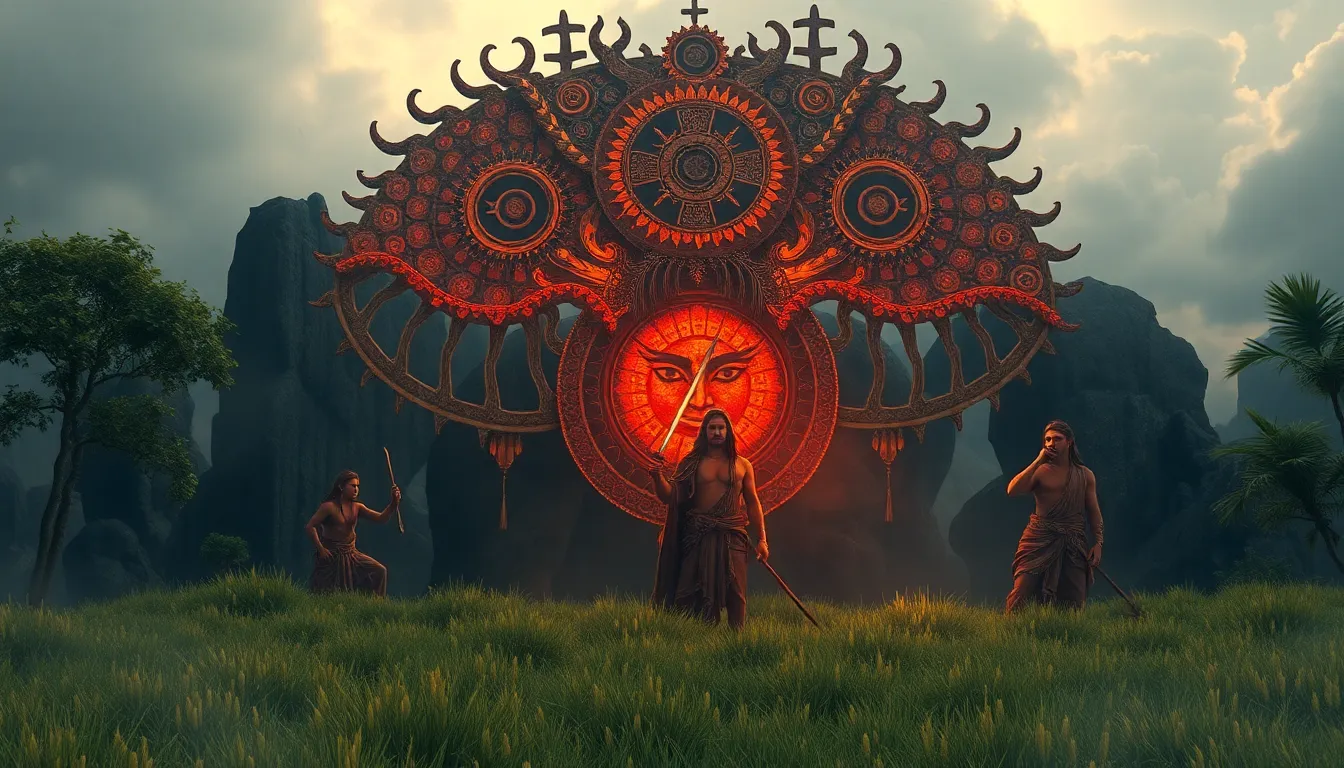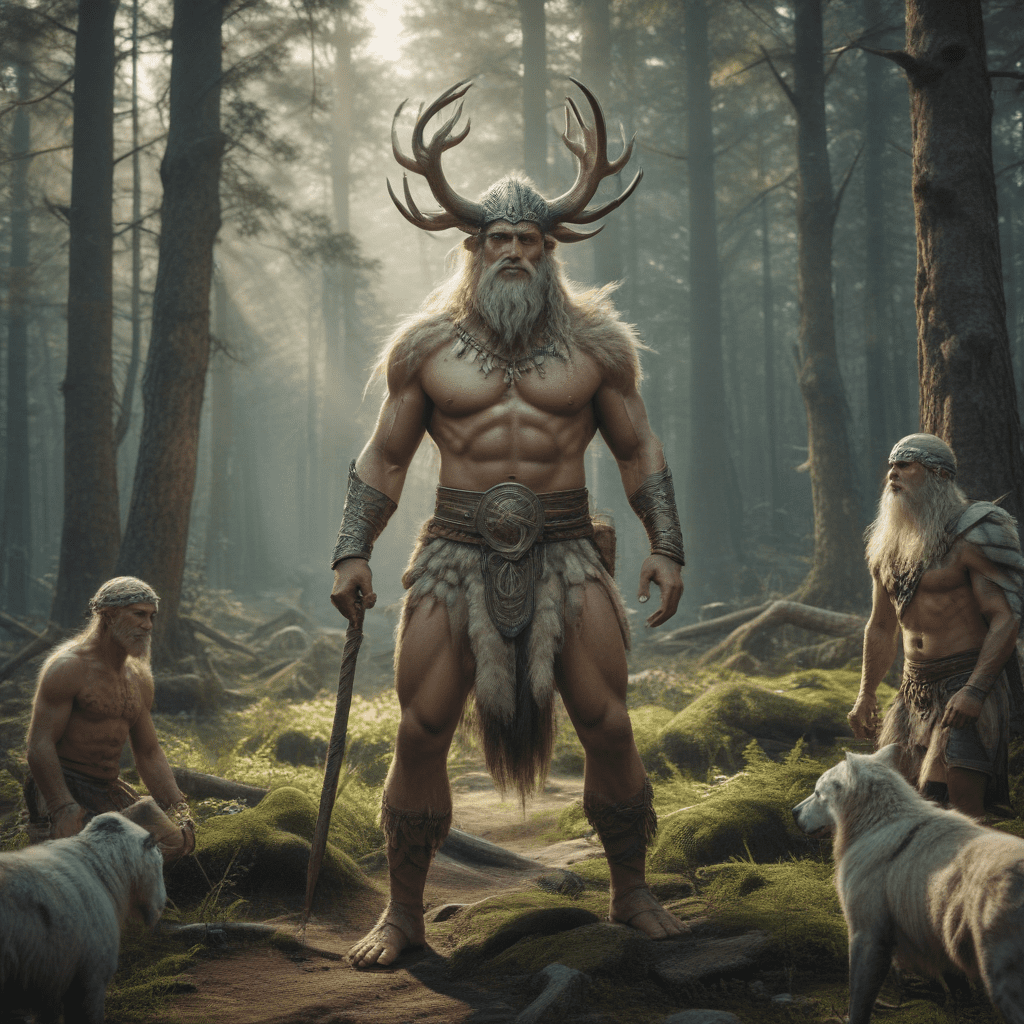Moral Myths in Indigenous Cultures: Wisdom from the Past
I. Introduction
Moral myths are narratives that convey ethical lessons and cultural values, serving as a guiding framework for communities. They encapsulate the collective wisdom of a culture, often passed down through generations. Understanding these moral myths is crucial for appreciating the depth and richness of indigenous cultures, which offer unique perspectives on morality and ethics.
This article aims to explore the significance of moral myths in various indigenous cultures, highlighting their functions, examples, and relevance in contemporary society. It will also address the challenges faced by these cultures in preserving their moral narratives and propose the importance of reviving and integrating these teachings into modern life.
II. Understanding Moral Myths
A. Definition and characteristics of moral myths
Moral myths are stories that embody the ethical principles and values of a culture. They often feature characters, events, and symbols that reflect the moral fabric of the community. Characteristics of moral myths include:
- Symbolism: Use of symbolic elements to convey deeper meanings.
- Relatability: Characters and situations that resonate with the audience’s experiences.
- Didactic Function: Designed to teach lessons about right and wrong.
- Timelessness: Themes that remain relevant across generations.
B. Role of moral myths in shaping cultural values
Moral myths play a pivotal role in instilling cultural values by providing frameworks for behavior and social interaction. They help individuals understand their place within the community and their responsibilities toward others and the environment.
C. Distinction between moral myths and religious beliefs
While moral myths may contain spiritual elements, they differ from religious beliefs in that they are primarily concerned with ethical and moral behavior rather than the worship of deities or adherence to religious doctrines.
III. The Function of Moral Myths in Indigenous Societies
A. Preservation of social order and community cohesion
Moral myths contribute to social order by establishing norms and expectations for behavior. They foster a sense of belonging and collective identity among community members.
B. Transmission of ethical and moral teachings
These myths serve as vehicles for passing down ethical teachings, ensuring that younger generations understand their cultural heritage and the importance of moral conduct.
C. Influence on individual behavior and decision-making
Moral myths often guide personal choices and actions, influencing how individuals relate to one another and the environment. They encourage reflection on the consequences of one’s actions within a broader ethical context.
IV. Case Studies of Indigenous Moral Myths
A. Native American moral myths
1. The story of the Great Spirit
The Great Spirit is a central figure in many Native American cultures, representing the interconnectedness of all life. This myth teaches respect for nature and emphasizes the spiritual dimension of the natural world.
2. Lessons on respect for nature
Many Native American stories illustrate the importance of living in harmony with nature, showcasing the consequences of disrespecting the earth.
B. Australian Aboriginal Dreamtime stories
1. Creation myths and moral lessons
Dreamtime stories are foundational narratives that explain the creation of the world and its inhabitants. They often incorporate moral lessons about community responsibilities and respect for the land.
2. Connection to land and identity
These myths reinforce the deep connection between Aboriginal peoples and their land, highlighting the moral obligation to care for it.
C. Maori myths from New Zealand
1. The story of Maui and moral perseverance
The tales of Maui, a demigod known for his cleverness and bravery, emphasize themes of perseverance and the importance of striving for the greater good.
2. Concepts of kinship and community
Maori myths often stress the significance of kinship ties and collective responsibility, illustrating how individual actions impact the wider community.
V. The Role of Nature in Indigenous Moral Myths
A. Nature as a moral authority
In many indigenous cultures, nature is viewed as a moral authority, offering lessons about balance and sustainability. The natural world is seen as a teacher, providing guidance on how to live ethically.
B. Stories that emphasize environmental stewardship
Moral myths frequently include narratives that promote environmental stewardship, encouraging respect for wildlife and natural resources.
C. Lessons on balance and harmony with the natural world
These stories often convey the importance of maintaining harmony with nature, stressing that human well-being is intrinsically linked to the health of the environment.
VI. The Intersection of Moral Myths and Modern Ethics
A. Relevance of indigenous moral teachings in contemporary society
The ethical teachings found in indigenous moral myths remain relevant today, offering insights into sustainable living and community-oriented values.
B. Comparing indigenous moral frameworks to Western ethical systems
Indigenous moral frameworks often differ significantly from Western ethical systems, which may prioritize individualism over collectivism. This contrast highlights the value of diverse ethical perspectives.
C. The role of indigenous voices in modern ethical discussions
Indigenous communities are increasingly contributing to modern ethical discussions, advocating for recognition of their wisdom and the importance of integrating their perspectives into broader societal conversations.
VII. Challenges to the Preservation of Moral Myths
A. Impact of colonization and cultural assimilation
Colonization has profoundly affected indigenous cultures, often leading to the erosion of traditional beliefs and practices, including moral myths.
B. Threats from globalization and modernization
Globalization and modernization pose additional challenges, as indigenous cultures face pressures to conform to dominant societal norms.
C. Efforts by indigenous communities to revive and sustain their myths
Many indigenous communities are actively working to revive and sustain their moral myths, recognizing their importance in maintaining cultural identity and resilience.
VIII. Case for Reviving Indigenous Moral Myths
A. Benefits of integrating indigenous wisdom into modern life
Integrating indigenous wisdom into modern life can provide valuable insights into ethical living, environmental stewardship, and community cohesion.
B. Examples of successful revitalization efforts
There are numerous examples of successful revitalization efforts, such as language programs, cultural festivals, and educational initiatives aimed at preserving moral myths.
C. Potential for moral myths to address contemporary ethical dilemmas
Moral myths have the potential to address contemporary ethical dilemmas, offering alternative perspectives on issues such as environmental crises, social justice, and community well-being.
IX. Conclusion
In summary, moral myths in indigenous cultures offer profound insights into ethical living and community values. They play a crucial role in preserving cultural identity and promoting social cohesion. As we navigate complex contemporary ethical challenges, there is a pressing need to study and appreciate indigenous wisdom.
By recognizing and revitalizing these moral myths, we can enrich our understanding of human values and foster a more inclusive ethical landscape. The legacy of these stories continues to shape not only indigenous communities but also the broader human experience.
X. References and Further Reading
For those interested in exploring the topic further, here is a list of scholarly articles, books, and resources on indigenous moral myths:
- Smith, Linda Tuhiwai. “Decolonizing Methodologies: Research and Indigenous Peoples.”
- Turner, Nancy J. “The Earth’s Blanket: Indigenous Knowledge for a Sustainable Planet.”
- Wagner, Roy. “The Invention of Culture.”
- Deloria, Vine. “God Is Red: A Native View of Religion.”
- Harrison, Ted. “Indigenous Ethics and the Problem of Global Climate Change.”



